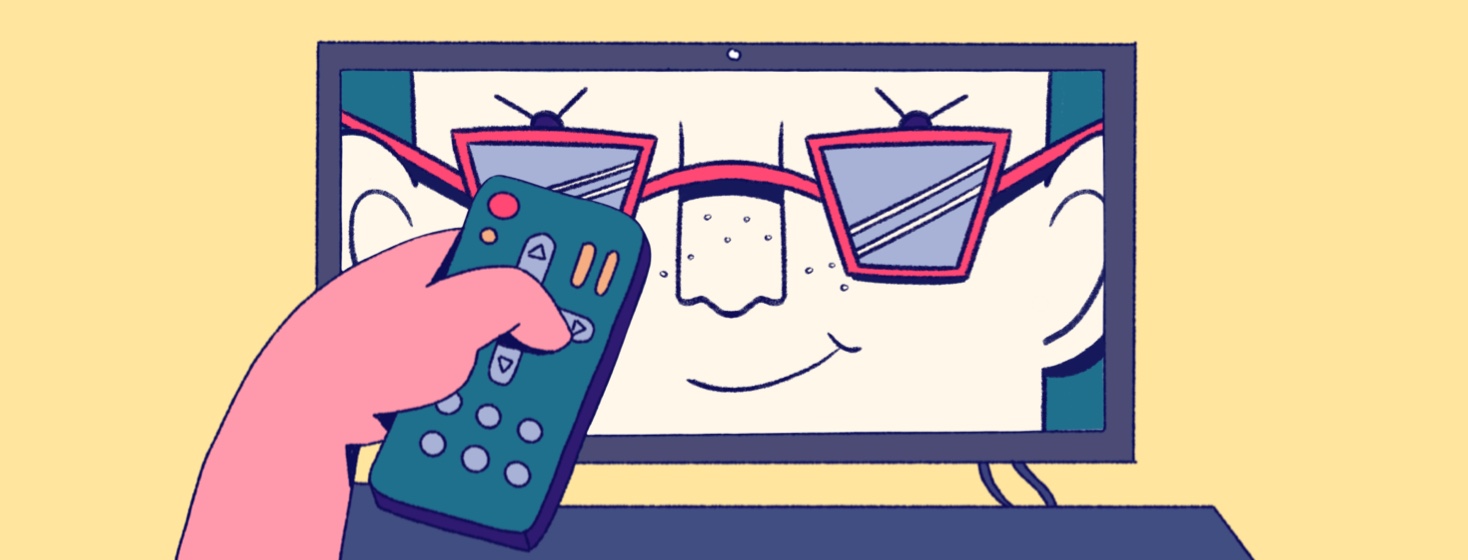Let’s Watch TV!
Being a VIP (Visually Impaired Person) doesn’t mean you have to quit enjoying television, movies, plays, and tours.
Watching TV
Of course, one thing you can do is to get the biggest TV you can afford. I read somewhere that there are 98-inch screens available!
Personally, I think that’s a bit too much unless you want to start charging admission to help pay for it! 😁
It's hard to wade through all the terminology such as 4K, 8K, LED 1090p...yikes!
Sitting closer
Maybe sitting closer is easier and certainly less expensive! One of the members of my Facebook group says he bought a beanbag chair, and he’s very comfortable using it for TV.
I know that there are some people who are concerned what effect blue light from electronics has on our eyes. Currently, there is evidence that too much blue light from the use of electronics may affect our circadian rhythm, but there's no definitive proof that it damages our eyes.
Smart TVs, Remotes, Services and More!
There are many aspects to watching TV today, especially for VIPs. There are:
- Being able to magnify what's on the screen using "TV glasses"
- Audio description of shows
- Smart TVs, which are basically TVs with internet connection
- Easier-to-use remotes with expanded options
- Audio output from TV settings and menus
- Voice-enabled functions
- Enhanced TV programming through TV channels, streaming services, and internet providers
There's too much information for one page, so I let me tell you about 2 options to help enjoy TV that you may not have heard about.
TV glasses
Have you heard of "TV glasses"? They are specially designed magnifying glasses to help you see at the distance that we usually sit from the TV. The first ones I became aware of some years ago were the MaxTV glasses made by Eschenbach.
The Eschenbach website says, “The glasses will focus on objects from distances of 3 m [10 feet] to infinity and are perfect for watching TV, sporting events, movies, theatre, bird watching, or any other distance viewing activity in which a magnified image would be helpful.”
Many different types
Since then, many other brands, types, and prices of these distance-focusing magnifying glasses have become available. The prices vary considerably. I personally would stay away from the very inexpensive ones and the most expensive ones. You can go do an internet search or go to Amazon.com and search for "TV glasses distance viewing."
Looking at the ratings
I encourage you to make sure that before you buy any low vision aid that you make sure you can return it for free. What works for one person may not work for you. Also, if there are reviews by people who’ve bought the item, check them out. One thing I do when reading reviews is to look at how many people chose the top 2 ratings. For example, if it’s a 5-star system, I look at the 5s and the 4s.
No more ‘silent films’
OK, I’m stretching the use of ‘silent films’ here, but I hope you’ll see what I’m referring to.
Are you frustrated that you can’t see TV programs and movies on TV, movies in a theater, and plays in a theater? Are you having problems when you go on a tour or to a museum? Audio Description (AD) gives audio narration that describes what’s going on for all of those cases.
The American Council of the Blind (ACB) has an AD Project and is one of the best places to find out what’s available. AD is available for an ever-growing list:
- TV channels and streaming services (Netflix, Hulu, etc)
- DVDs and Blu-ray discs
- Museums and tours
- Movie theaters
- Plays in theaters
- Some cruise lines
- Some national parks
- Some in-flight movies
I’m sure I’ve forgotten something so I'd recommend checking out this detailed article “Enjoying Television with Vision Loss.”1

Join the conversation